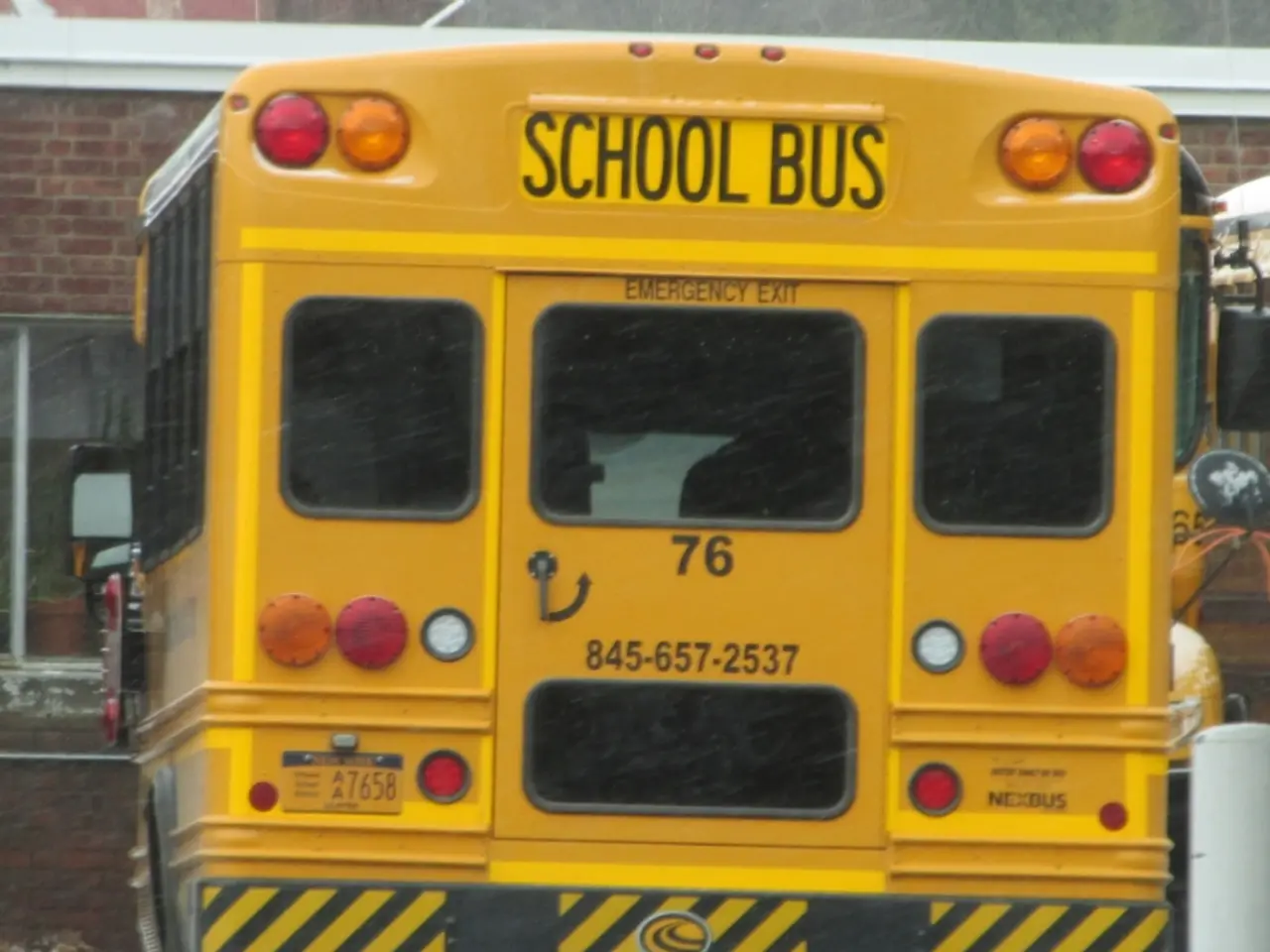New teachers for Saxony's schools: Education Minister expresses excitement, GEW interprets it as further staffing exploitation
In the Free State of Saxony, a severe teacher shortage and funding challenges are causing significant disruptions in the education system, as highlighted by the Gewerkschaft Erziehung und Wissenschaft (GEW). The union is calling for immediate changes in educational policy to address the issues.
Current Challenges
The teacher shortage has led to the cancellation of approximately 9% of lessons in the previous school year [1]. To cope with the shortage, more than 4,000 additional teachers are estimated to be needed to fully cover lessons that currently rely on supplementary teaching [1]. Despite the hiring of over 1,100 new teachers, including 885 qualified specialists and 229 lateral entrants currently in training, the existing measures are considered insufficient by the union [1].
Teachers are often required to teach extra hours or cover for colleagues at other schools, which GEW acknowledges as a temporary stopgap but not a sustainable solution [2]. The union views the outlook for coming months as gloomy.
Solutions and Measures
The Saxon Ministry of Education has taken steps to address the shortage by hiring new teachers and launching training programs. New teacher training programs, such as the Upper Lusatian teacher degree course in Görlitz and Zittau, have been started to increase the teacher supply in secondary education [2].
However, GEW calls for stronger, sustainable measures and more funding to effectively solve the problem rather than relying on temporary fixes like overtime teaching [1][2]. The union also emphasizes the need for a long-term strategic approach beyond immediate stopgap solutions.
Educational Funding
While the scale of teacher recruitment and new programs implies a significant financial investment by the Free State of Saxony, the specifics of funding are not explicitly detailed. The union's emphasis on insufficient coverage and ongoing shortages suggests funding and resource allocation remain challenges, requiring further enhancement to meet demand.
Other Concerns
In addition to the teacher shortage, other issues such as reduced funding hours for inclusion, full-day offers (GTA), school budgets, and programs like homework support or tutoring are causing concerns [1]. The training of new teachers is being weakened due to a lack of support and training for student teachers, and specialist advice is being reduced, leading to more dropouts and lower quality in teacher training [1].
Looking Ahead
As approximately 534,000 students prepare to start a new school year on Monday, August 11th, GEW Saxony demands a realignment of educational policy, including targeted incentives for rural areas, upper schools, and special schools, and an education package that puts quality and justice at the center [1]. The union has criticized the teacher shortage as being ignored for years.
Despite the challenges, almost 88% of all teaching staff trained in Saxony applied for positions within the state, with 93% of the trained applicants being hired [1]. The "21 measures" of the Ministry of Culture to combat lesson cancellations aim for more teaching coverage but have raised concerns about quality at schools.
The Free State of Saxony has hired a total of 1,114 teaching staff for the new school year, but teachers who are already working at their limit are being asked to do more, increasing their workload [1]. The total number of full-time equivalents (FTE) in the Saxon school system is 438.5 more than in 2024/2025. However, many employees had hoped for permanent contracts but are now receiving temporary contracts again, and secondments are causing significant interference in pedagogical continuity, especially in primary schools [1].
[1] "GEW-Sachsen fordert umgehende Veränderung der Bildungspolitik aufgrund der aktuellen Lage." [2] "Sachsen hat 1.114 Lehrkräfte für den Schuljahrstart 2025/2026 angestellt."
- The union, Gewerkschaft Erziehung und Wissenschaft (GEW), is advocating for a long-term strategic approach to address the education-and-self-development challenges in the Free State of Saxony, including funding increase, targeted incentives, and a focus on quality education.
- Amidst the ongoing political debate regarding the Saxon education system, GEW Saxony is expressing concerns about the general-news topics of insufficient funding for inclusions, school budgets, and programs like homework support or tutoring, which they believe need immediate attention.




